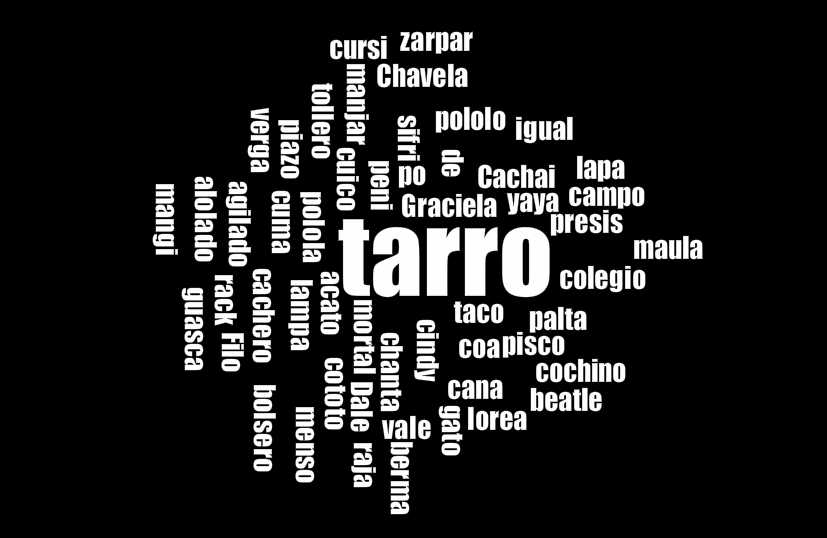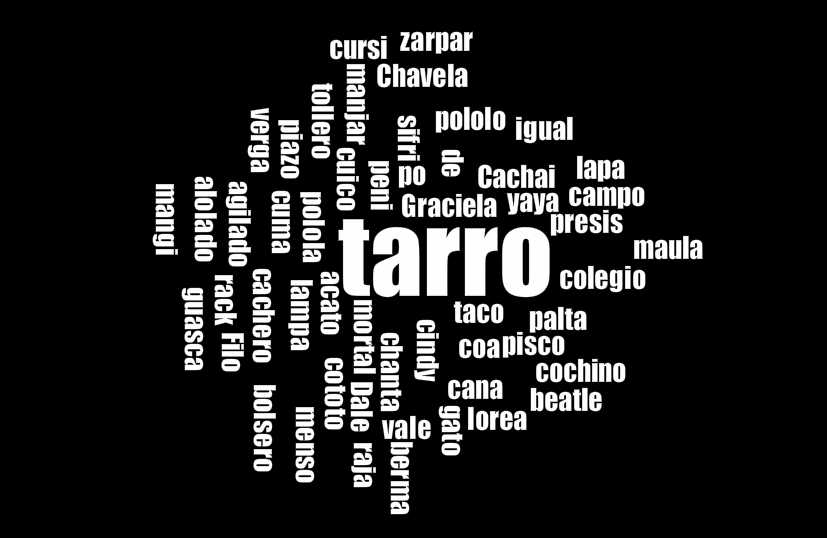
My Spanish immersion, I believe, is going swimmingly. This of course means – I am learning more Chilenismos! However, I have learned not everything in my slang book is used in real conversation. It may have been my own ignorance, or possibly stupidity, that made me believe that everything in my little, blue book would be commonly used in Chile.
Whatever the reason, I now know phrases like, “¿Cómo le vaca?” aren’t spoken, ever.
One of the first days in Chile, an AFS volunteer and I pined through from my book, and he informed me that some of the slang is very outdated or just plain odd. However, some of the phrases he chuckled at; they reminded him of colloquialisms he says daily or words that he had forgotten. When we came upon ‘¿Cachai?’, he exclaimed the Chilenismo excitedly. This was the common reaction for any Chilean that read over the text. Cachai has a special place in the hearts of Chileans.
Some other notable Chilenismos he and other Chileans have enjoyed are “¡Plop!” and ‘súper’. One of Chile’s most notable exports is a comic known as Condorito (Little Condor). It focuses on an anthropomorphic condor and his adventures in the human world. At the end of every comic, especially when there is a bad joke, the phrase “¡Plop!” is interjected. “¡Plop!” is used to break an awkward silence. In real conversation after a bad joke where no one laughs, “¡Plop!” should be uttered in order to restart the conversation. I wish English had a conversational restart like this.
My AFS Chile Summer group used this a lot when meals became too quiet, much to the enjoyment of the Chilean AFS staff.

Another big Chilenismo is ‘súper’. This word is actually an Anglicismo. Anglicismo is a fancy way to say a loanword in Spanish from English. A loanword is a word that has the same meaning in another language with its original spelling. Examples of loanwords in English are wanderlust (which is German) and fjord (which is originally Norwegian).
I have heard ‘súper’ everywhere! My host mother uses it constantly, television hosts throw it around, and it occasionally appears on ads. I am definitely going to use this when I am back in the States.
My Spanish teachers might look at me funny when I respond, “¡Estoy súper bien!”, but I don’t care – I love it.
Other fun Chilenismos include:
¿Qué onda, microonda? – What’s going on? – My AFS group found this phrase hilarious. We compared it to saying, “What’s up my homie?” in English. We joked that if we said this when we first met our host families, they’d leave us out of embarrassment. I have yet to start a conversation with it.
¡Chanta la moto! – Stop! Slow Down! – An AFS volunteer found this command especially funny. I don’t know why, but it is fun to say.
güeón (adj./ noun) – awesome, buddy, friend, jerk, asshole – Güeón is the jack of all meanings. It can be used as a compliment or insult when describing your friend. Context is key. I have also seen multiple versions of its spelling.
¿Cuánto vale? – How much is it? – I am still getting used to this question. I am used to saying, “¿Cuánto cuesta?”, so this is will take some time to get acquainted with. However, I hope to use this phrase much more in the future.
More to come about Chile’s unique Spanish and other fun, useful phrases!
*Image source: No author stated, http://www.biobiochile.cl/2012/12/15/condorito-no-siempre-fue-igual-conoce-la-evolucion-de-condorito-desde-1949-hasta-la-actualidad.shtml
